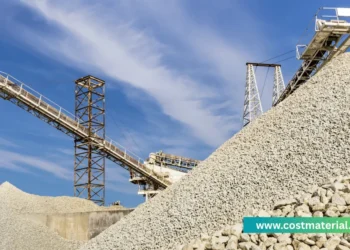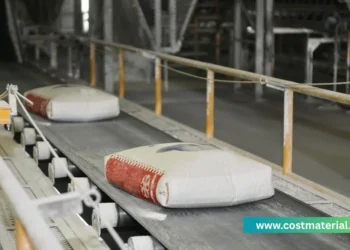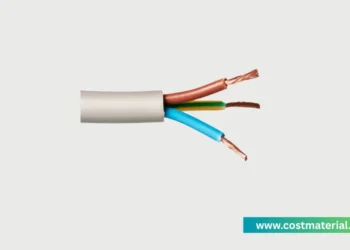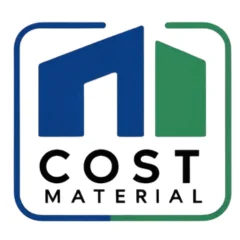Table of Contents
Looking for a comprehensive phenolic board price list in the Philippines? You have come to the right place. This guide provides an in-depth look at the costs associated with this versatile construction material. Understanding the prices of phenolic boards is crucial for budgeting your next project. Consequently, this article will equip you with the knowledge to make informed purchasing decisions. We will explore the different types of phenolic boards, their various applications, and the factors that influence their prices.
1 Your Ultimate Guide to Phenolic Board Prices in the Philippines
Phenolic boards are a staple in the Philippine construction industry. Their durability and water-resistant properties make them a popular choice for formworks, partitions, and even furniture. However, the price of phenolic boards can vary significantly. This variation depends on several factors, including thickness, brand, and supplier.
Therefore, having a reliable phenolic board price list is essential for contractors, architects, and DIY enthusiasts alike. This blog post aims to provide a detailed and up-to-date price list to help you navigate the market effectively. Furthermore, we will delve into the specifics of what makes one phenolic board more expensive than another, ensuring you get the best value for your money.
Understanding Phenolic Boards
Before we dive into the price list, it is important to understand what a phenolic board is. A phenolic board is a type of plywood that is coated with a phenolic film. This film, which is a thermosetting resin, gives the board its characteristic smooth, glossy finish and its impressive durability. The core of a phenolic board is typically made from layers of wood veneers, which are bonded together with a strong, water-resistant adhesive. This construction makes phenolic boards highly resistant to moisture, chemicals, and abrasion. As a result, they are an excellent choice for applications that require a robust and long-lasting material.
One of the primary uses of phenolic boards in the Philippines is for concrete formworks. Their smooth surface creates a fine finish on the concrete, reducing the need for additional plastering. Moreover, their durability allows for multiple reuses, making them a cost-effective option in the long run. Besides formworks, phenolic boards are also used for wall paneling, partitions, and even in the manufacturing of furniture and cabinetry. Their versatility is a key reason for their widespread use in various construction and design projects.
2 Phenolic Board Price List Philippines 2025
Navigating the market for phenolic boards requires a clear understanding of the current prices. The following table provides an estimated price list for various types and brands of phenolic boards available in the Philippines. Please note that these prices are indicative and can vary based on the supplier, location, and order quantity.
| Brand | Thickness (inches) | Dimensions (ft) | Estimated Price (PHP) | Reusability |
|---|---|---|---|---|
| Crocodile | 1/2 | 4 x 8 | ₱1,100 – ₱1,300 | Up to 5 times |
| 3/4 | 4 x 8 | ₱1,400 – ₱1,600 | Up to 5 times | |
| Imwood | 1/2 | 4 x 8 | ₱1,200 – ₱1,450 | Up to 7 times |
| 3/4 | 4 x 8 | ₱1,500 – ₱1,750 | Up to 7 times | |
| Phoenixply | 1/2 | 4 x 8 | ₱1,300 – ₱1,550 | Up to 10 times |
| 3/4 | 4 x 8 | ₱1,600 – ₱1,850 | Up to 10 times | |
| Geoply | 1/2 | 4 x 8 | ₱1,400 – ₱1,650 | Up to 12 times |
| 3/4 | 4 x 8 | ₱1,700 – ₱1,950 | Up to 12 times | |
| Treeway | 1/2 | 4 x 8 | ₱1,500 – ₱1,800 | Up to 15+ times |
| 3/4 | 4 x 8 | ₱1,850 – ₱2,200 | Up to 15+ times | |
| Generic/Unbranded | 1/2 | 4 x 8 | ₱950 – ₱1,150 | Up to 3 times |
| 3/4 | 4 x 8 | ₱1,250 – ₱1,450 | Up to 3 times |
3 Factors Influencing the Phenolic Board Price List
The price of phenolic boards is not arbitrary. Several key factors contribute to the final cost. Understanding these factors will help you to better interpret the phenolic board price list and make a choice that suits your budget and project requirements.
Thickness of the Board
The thickness of a phenolic board is a primary determinant of its price. Thicker boards, such as the 3/4-inch variety, contain more material and are therefore more expensive than their 1/2-inch counterparts. The choice of thickness depends on the application. For instance, applications that require higher strength and rigidity, like heavy-duty formworks, will necessitate a thicker and consequently more expensive board. Conversely, for less demanding applications, a thinner board may suffice, offering a more budget-friendly option.
Brand and Quality
The brand of the phenolic board also plays a significant role in its price. Established brands like Treeway and Geoply often command a higher price due to their reputation for quality and durability. These brands typically use higher-grade materials and more advanced manufacturing processes. This results in a board that can be reused more times, offering better long-term value. On the other hand, generic or unbranded phenolic boards are generally cheaper. While they may be suitable for single-use applications or projects with a tight budget, they may not offer the same longevity and performance as their branded counterparts.
Core Material and Adhesive
The type of wood used for the core veneers and the quality of the adhesive also impact the price. Phenolic boards with a hardwood core are generally more expensive and durable than those with a softwood or combi core. The adhesive used to bond the veneers is another crucial factor. Phenolic boards that use a high-quality waterproof adhesive, such as WBP (Weather and Boil Proof) melamine glue, will have a higher price tag. This is because these adhesives provide superior resistance to moisture and delamination, extending the life of the board.
Supplier and Location
Finally, the supplier you purchase from and your location in the Philippines can affect the price. Suppliers in major cities like Metro Manila may offer more competitive pricing due to higher competition and larger stock volumes. In contrast, prices in more remote areas may be higher due to additional transportation costs. It is always a good practice to get quotes from multiple suppliers to ensure you are getting the best possible price. Many suppliers also offer discounts for bulk orders, which can lead to significant savings on large projects.
4 Types of Phenolic Boards and Their Applications
Phenolic boards are not a one-size-fits-all product. They come in different types, each suited for specific applications. Understanding the different types will help you choose the right board for your needs and budget, as reflected in the phenolic board price list.
Based on Reusability
One of the most common ways to classify phenolic boards is by their reusability. This is a critical factor for construction projects, as it directly impacts the overall cost-effectiveness.
Economy/Standard Grade: These are the most affordable phenolic boards. They are typically designed for a limited number of uses, often between 3 to 5 times. These boards are a good choice for small-scale projects or applications where the formwork will not be subjected to heavy wear and tear.
Mid-Range Grade: These phenolic boards offer a good balance between price and durability. They can typically be reused between 7 to 12 times. Brands like Imwood and Geoply often fall into this category. They are a popular choice for residential and commercial construction projects.
Premium/High-End Grade: These are the most durable and also the most expensive phenolic boards. They are designed for high-rise construction and heavy-duty applications, with a reusability of 15 times or more. Treeway is a well-known brand in this category. The higher initial investment is often justified by the extended lifespan and superior performance of these boards.
Based on Core Material
The type of wood used in the core of the phenolic board also defines its type and, consequently, its price.
Hardwood Core: Phenolic boards with a full hardwood core are known for their exceptional strength and durability. They are less susceptible to bending and warping, making them ideal for demanding applications.
Combi Core: These boards have a core that is a combination of hardwood and softwood veneers. This offers a more economical alternative to full hardwood core boards while still providing good strength and performance.
Poplar/Softwood Core: These are the most affordable options. While not as strong as hardwood or combi core boards, they are lightweight and easy to handle. They are suitable for applications where strength is not the primary concern.
5 The Advantages of Using Phenolic Boards
The popularity of phenolic boards in the Philippines is due to their numerous advantages over other construction materials. These benefits often justify their position on the higher end of the price spectrum for panel boards.
Exceptional Durability and Strength
Phenolic boards are engineered for toughness. The cross-laminated structure of the wood veneers, combined with a strong adhesive, gives them excellent structural integrity. This allows them to withstand the rigors of a construction site, including the weight and pressure of wet concrete. Their durable nature means they can be used multiple times, which significantly lowers the overall cost of formworks in the long run.
Superior Water Resistance
The phenolic film that coats the board provides a highly effective barrier against moisture. This makes phenolic boards ideal for use in the humid climate of the Philippines. Unlike ordinary plywood, which can swell and delaminate when exposed to water, phenolic boards maintain their shape and strength. This water resistance is crucial for concrete formworks, as it prevents the board from absorbing water from the concrete mix, which can affect the curing process and the final finish.
Smooth Surface Finish
The smooth, non-porous surface of a phenolic board imparts a clean and even finish to the concrete. This can significantly reduce the need for costly and time-consuming plastering work. The high-quality finish achieved with phenolic boards is a major reason why they are favored by architects and builders who aim for a superior aesthetic in their projects.
Versatility in Application
While most commonly associated with formworks, the use of phenolic boards extends to a wide range of applications. They are used for creating durable and easy-to-clean partitions in commercial and industrial buildings. Their strength and smooth surface also make them a suitable material for manufacturing furniture, cabinetry, and shelving. This versatility makes them a valuable material for various construction and design needs.
6 Potential Drawbacks to Consider
Despite their many advantages, there are a few potential downsides to using phenolic boards that you should be aware of.
Higher Initial Cost
As evident from the phenolic board price list, the initial investment for these boards is higher compared to ordinary plywood or other paneling materials. However, it is important to consider the long-term value. The reusability and durability of phenolic boards can make them a more economical choice over the entire lifespan of a project.
Difficulty in Painting
The same smooth, non-porous phenolic film that provides a great concrete finish also makes it difficult for paint to adhere to the surface. Special primers and paints are required if you intend to paint a phenolic board. This can add to the overall cost and complexity of the project.
Weight
Phenolic boards, especially the thicker and hardwood core varieties, can be quite heavy. This can make them more challenging to handle and transport on a construction site, potentially requiring more labor.
7 Where to Buy Phenolic Boards in the Philippines
Phenolic boards are widely available from various construction supply stores and hardware chains across the Philippines. Here are some of the common places where you can purchase them:
- Large Hardware Chains: Stores like Wilcon Depot, Co Ban Kiat Hardware, and Handyman often carry a selection of phenolic boards from different brands.
- Specialty Construction Suppliers: Many suppliers specialize in formwork and scaffolding materials. These suppliers, such as PhenolicPlywood.ph and Phoenix Construction Supply, often have a wider range of brands and thicknesses to choose from.
- Online Marketplaces: Platforms like Lazada and Shopee also have listings for phenolic boards from various sellers. While this can be a convenient option, it is important to verify the seller’s reputation and the quality of the product before making a purchase.
8 Summary
The “Phenolic Board Price List” is a critical tool for anyone involved in construction and design in the Philippines. This comprehensive guide has provided you with an in-depth understanding of the factors that influence the cost of phenolic boards, including thickness, brand, and material quality. We have explored the various types of phenolic boards available, from economy grade to premium options, and their respective applications. Furthermore, we have highlighted the significant advantages of using phenolic boards, such as their durability, water resistance, and the smooth finish they provide, while also acknowledging potential drawbacks like their higher initial cost.
By using the provided price list as a starting point and considering the factors discussed, you are now better equipped to make informed decisions when purchasing phenolic boards. Remember to always get quotes from multiple suppliers and consider the long-term value and reusability of the board to ensure you are making a cost-effective choice for your project. With the right knowledge, you can confidently navigate the market and select the perfect phenolic board that meets both your project’s requirements and your budget.
Did you find this blog post helpful? Share it to others! For more construction material price lists, check our other blog post.





